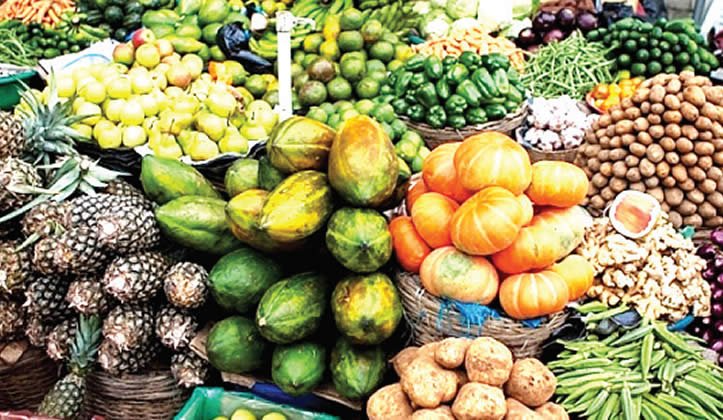
A Post-harvest Specialist and Head of the Department of Food Science and Technology at the Federal University of Technology, Akure, Prof. Isaac Oluwalana, has urged the Federal and State Governments, as well as relevant stakeholders, to address the lingering food insecurity across the country.
In an interview with our correspondent, the food technologist decried the looming danger posed by the high rate of food loss in the land, saying it would consequently lead to future starvation.
“Fear of near future starvation in the country if food losses are not addressed is real,” Oluwalana affirmed.
He wondered why in a country of over 200 million people, and the rising age of digital technology, Nigerians still largely practice subsistence or traditional (non-mechanised) farming.
“This is a far cry from attaining food sufficiency.
“As a professor of food storage, processing and preservation (Post-harvest Technology), for close to a decade in this country, I have sufficient data to show that between 30 to 70 per cent of even the less-sufficiently produced food crops are lost between the field (farm) and the table (consumers).
“Reasons for this are inexhaustible but include social, natural, economic or financial, and technical,” he said.
Oluwalana added that poor harvesting techniques by farmers who were largely illiterates; wrong timing of harvesting as some of the reasons for the massive food loss experienced in the country.
He advised that the harvesting of agricultural crops should be done either early in the morning or evening when heat from the sun is at its lowest, “to reduce moisture loss and respiration from the crops”.
He noted that the rough handling of the crops during harvesting could cause damages to them and hasten their deterioration under storage. Oluwalana said that the failure to immediately give the commodities appropriate treatments such as washing or cooling, removing microbes, field heat, and then followed by proper packaging and storage, could also compromise food production.
Some other reasons he highlighted as causes of food loss and wastage include the “unavailability of dedicated transportation system including bad roads and handling facilities; lack of appropriate storage facilities for agricultural fresh food commodities (pack houses, cooling stores and silos), and lack of appropriate marketing channels”.
He expressed dissatisfaction over a situation where farmers grovel at the mercy of the middlemen and women, in facilitating the food processing systems.
Oluwalana suggested a public-private partnership as part of solutions to reduce food losses whilst mitigating the scourge of hunger and poverty in the land.
“Government, institutions of learning/research, and the financial houses need to rub minds together to come up with sincere and robust programmes which will be religiously implemented to increase food crops production, minimise their wastage/losses, and add value to them.
“These, if quickly addressed, will guarantee food security, reduce seasonal gluts and arrest the impending hunger and starvation,” he said.
Copyright PUNCH.
All rights reserved. This material, and other digital content on this website, may not be reproduced, published, broadcast, rewritten or redistributed in whole or in part without prior express written permission from PUNCH.
Contact: [email protected]





